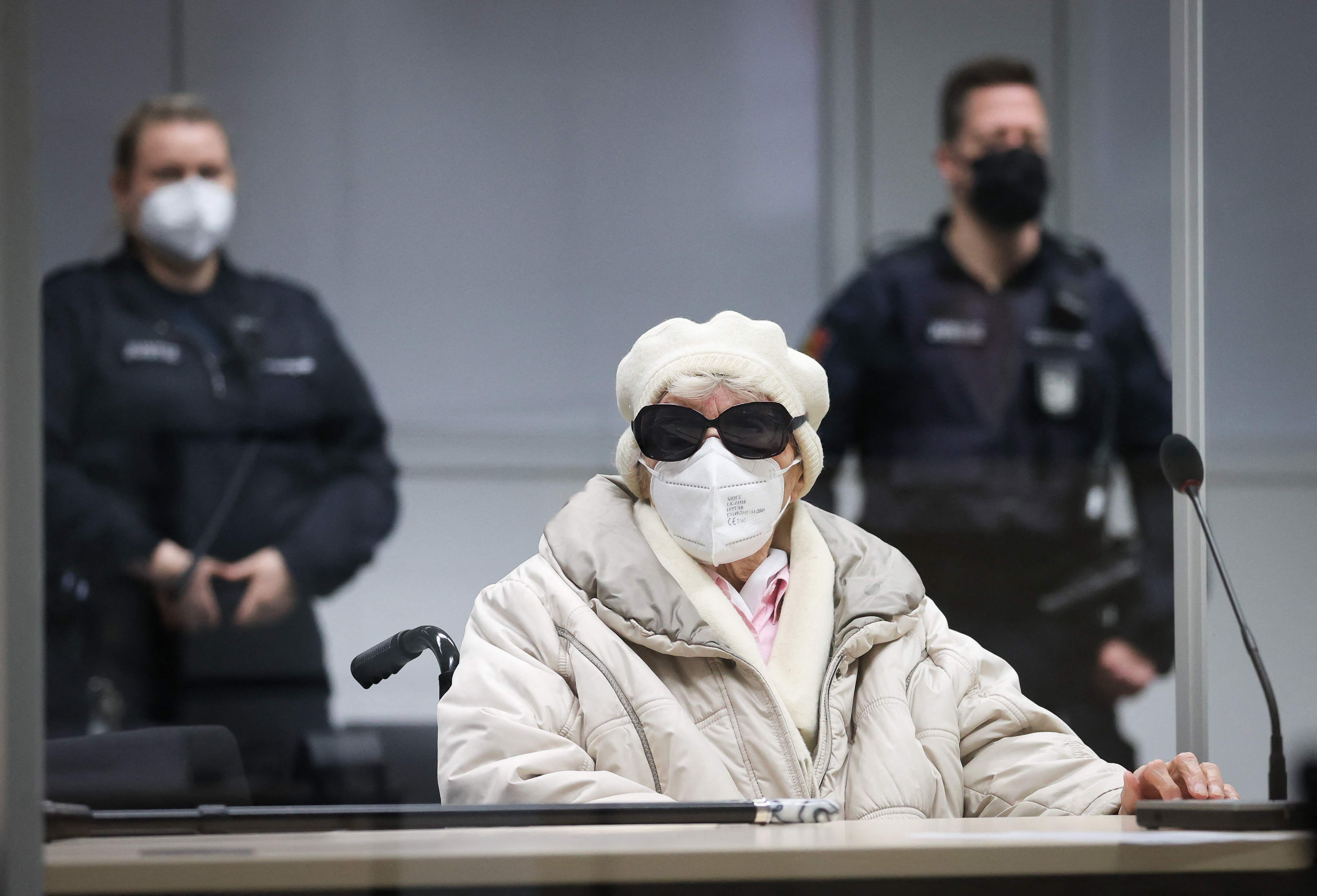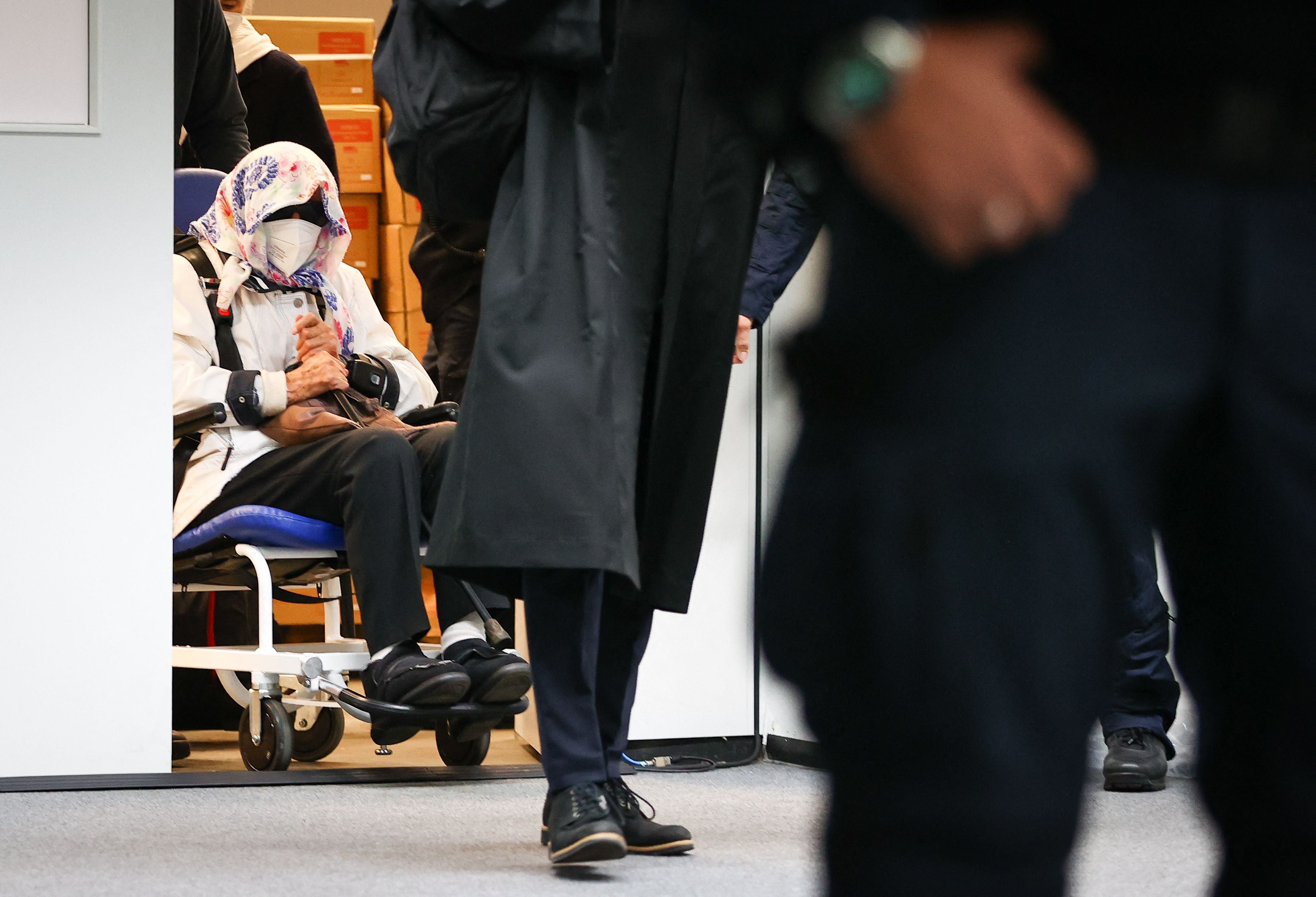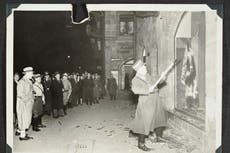German prosecutors call for 97-year-old former secretary to SS commander be convicted
Proceedings are of ‘outstanding historical significance’

A 97-year-old woman who was the secretary to the SS commander of the Stutthof concentration camp is facing calls for conviction for being an accessory to murder by German prosecutors.
Irmgard Furchner has been on trial for more than a year at the Itzehoe state court in northern Germany, and prosecutors are arguing for her to be given a two-year suspended sentence.
Furchner is being tried in a juvenile court because she was under 21 at the time of the alleged crimes.
Prosecutor Maxi Wantzen said in closing arguments that “these proceedings are of outstanding historical significance”, the German news agency dpa reported.
Prosecutors accuse Furchner of being part of the apparatus that helped the Nazis’ Stutthof camp function during the Second World War.
She is alleged to have “aided and abetted those in charge of the camp in the systematic killing of those imprisoned there between June 1943 and April 1945 in her function as a stenographer and typist in the camp commandant’s office”.
Wantzen said on Tuesday that the defendant would have been able to see large parts of the camp from her office, including an area where new prisoners arrived.

She also must have been able to see and smell smoke from the burning of bodies at the crematorium, the prosecutor added.
Even if the defendant did not enter the fenced-in camp herself “that was not necessary from my point of view to have knowledge of the mass murders”, Wantzen said.
Furchner has not responded to the charges against her during the trial. There are no formal pleas in the German judicial system.
Tens of thousands of people died at Stutthof and its satellite camps, or on so-called death marches at the end of the war.
Closing arguments are to continue on November 29.
Join our commenting forum
Join thought-provoking conversations, follow other Independent readers and see their replies
Comments


Bookmark popover
Removed from bookmarks